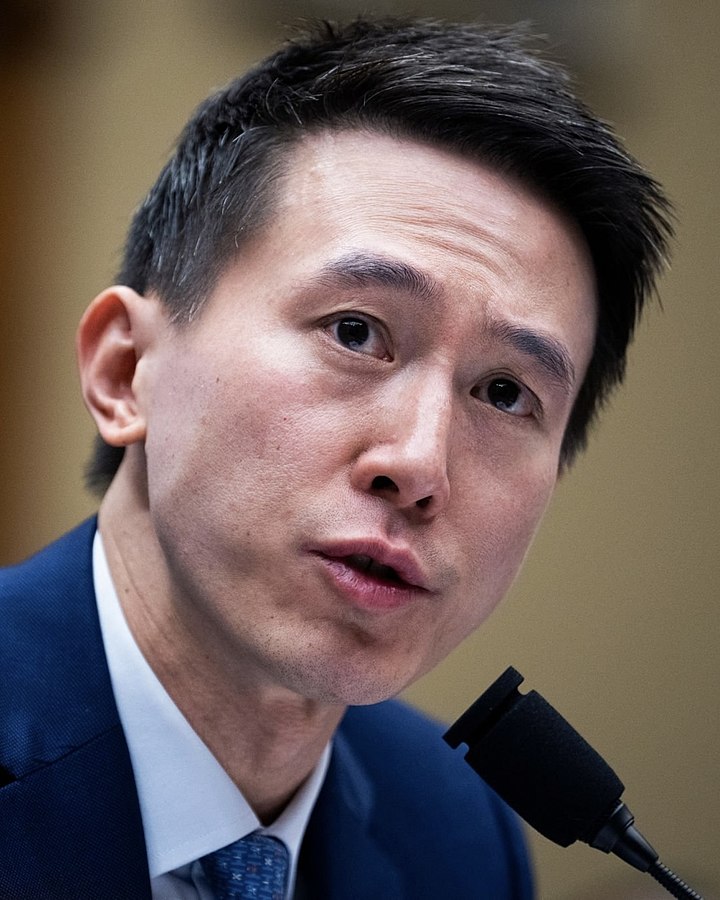Future of TikTok remains uncertain after congressional hearing
TikTok CEO Shou Zi Chew, pictured here, appeared before Congress on March 23 to discuss concerns related to the popular app.
On March 23, TikTok CEO Shou Zi Chew made an anticipated appearance before Congress in a hearing that stretched for more than five hours and focused on a range of issues related to the popular social media app, including its ties to China, user data privacy and protection for its youngest users.
According to demandsage.com, a data reporting website, TikTok has over 1.53 billion users worldwide, including 150 million American citizens, The app was initially released in 2016, and only became global in 2018 when it merged with Musical.ly. TikTok surged in popularity around 2020, as the coronavirus pandemic forced many around the world to stay in their houses.
The app’s rise in popularity has been accompanied by concerns about its connection to China. It is owned by Chinese firm ByteDance, which raises questions about China’s potential influence over TikTok and its users.
These concerns were front and center during Chew’s appearance before Congress. Several Energy and Commerce Committee members in the U.S. House questioned him about the frequency of his contact with ByteDance executives and the potential for Chinese laws to mandate access to user data.
Chew continuously emphasized the company’s commitment to protecting user data and its efforts to relocate U.S. user data to domestic servers. Lawmakers remained skeptical, with some expressing concerns about the feasibility of completing this effort by the end of the year.
The hearing also featured discussions about youth safety and mental health. TikTok has faced lawsuits over viral “challenges” and the spread of content related to drug abuse, self-harm and eating disorders.The app’s developers have pledged to take steps to address these issues, but lawmakers expressed concern about the impact of these challenges on young users.
According to a March 26 USA Today article, the focus of questions from members of Congress was on how the app uses personal data from American users. As quoted by USA Today, Democratic Rep. Lisa Blunt Rochester of Delaware said to Chew, “I’m not…reassured by anything you’ve said so far. Quite frankly, your testimony has raised more questions for me than answers.”
Despite TikTok’s assurances, the future of the app is uncertain in the United States with the Biden administration considering a possible national ban, in line with many other countries who have banned it from government devices or are planning to. U.S. representatives outside of the Energy and Commerce Committee remain unconvinced by TikTok’s assurances, with Sens. Mark Warner and John Thune reiterating concerns about the possibility that Chinese companies would comply with Chinese intelligence services’ requests.
As noted on https://www.warner.senate.gov/, Warner, a Democrat, and Thune, a Republican, introduced a bipartisan bill in March called the Restricting the Emergence of Security Threats that Risk Information and Communications Technology, or RESTRICT, Act. It isn’t a TikTok ban, as vox.com reported on March 29, but could lead to one, since it addresses “all technology companies from countries that have been identified as countries of concern.”
Sen. Michael Bennet of Colorado has gone even further, calling for a total ban on TikTok on the morning of March 23, before the congressional hearing began. However, a national ban on the app faces significant legal hurdles and other obstacles in terms of public opinion. Earlier attempts to ban the app faced criticism for violating free speech, and civil liberties groups have already opposed any potential ban.
“The possible ban is kind of stupid because Facebook, Instagram, and other American social media sites have the same risk,” said Guilford College sophomore Arielle Ray.
After the congressional hearing, media outlets including CNN also reported on TikTok users speaking out on the app about legislators’ lack of knowledge when it comes to the internet. One member of Congress singled out by CNN was Rep. Richard Hudson of North Carolina, who asked Chew if TikTok could access his home WiFi network if he had the app on his phone – and his phone happened to be on his home WiFi network.
According to CNN, in return, one TikTok user mocked Hudson with this question: “‘Does TikTok access my battery to steal my electricity?’”
The TikTok congressional hearing underscored the complex challenges facing the popular social media app, as it seeks to address concerns about data privacy, youth safety, and its relationship with China. The future of the app in the U.S. remains uncertain with stakeholders and lawmakers alike continuing to debate the best path forward.
“I just don’t think that is fair considering that sites like Twitter, which spreads even more falsehoods, isn’t scrutinized,” said Guilford junior Laamar Adams.
According to multiple media sources, amid the lack of resolution, several U.S. states, and colleges have enacted bans on TikTok on official devices in recent months. The White House also recently indicated its support for the RESTRICT Act.
As quoted by vox.com, National Security Adviser Jake Sullivan said in a statement that the Biden administration “‘look(s) forward to continue working with both Democrats and Republicans on this bill, and urge Congress to act quickly to send it to the president’s desk.’”











